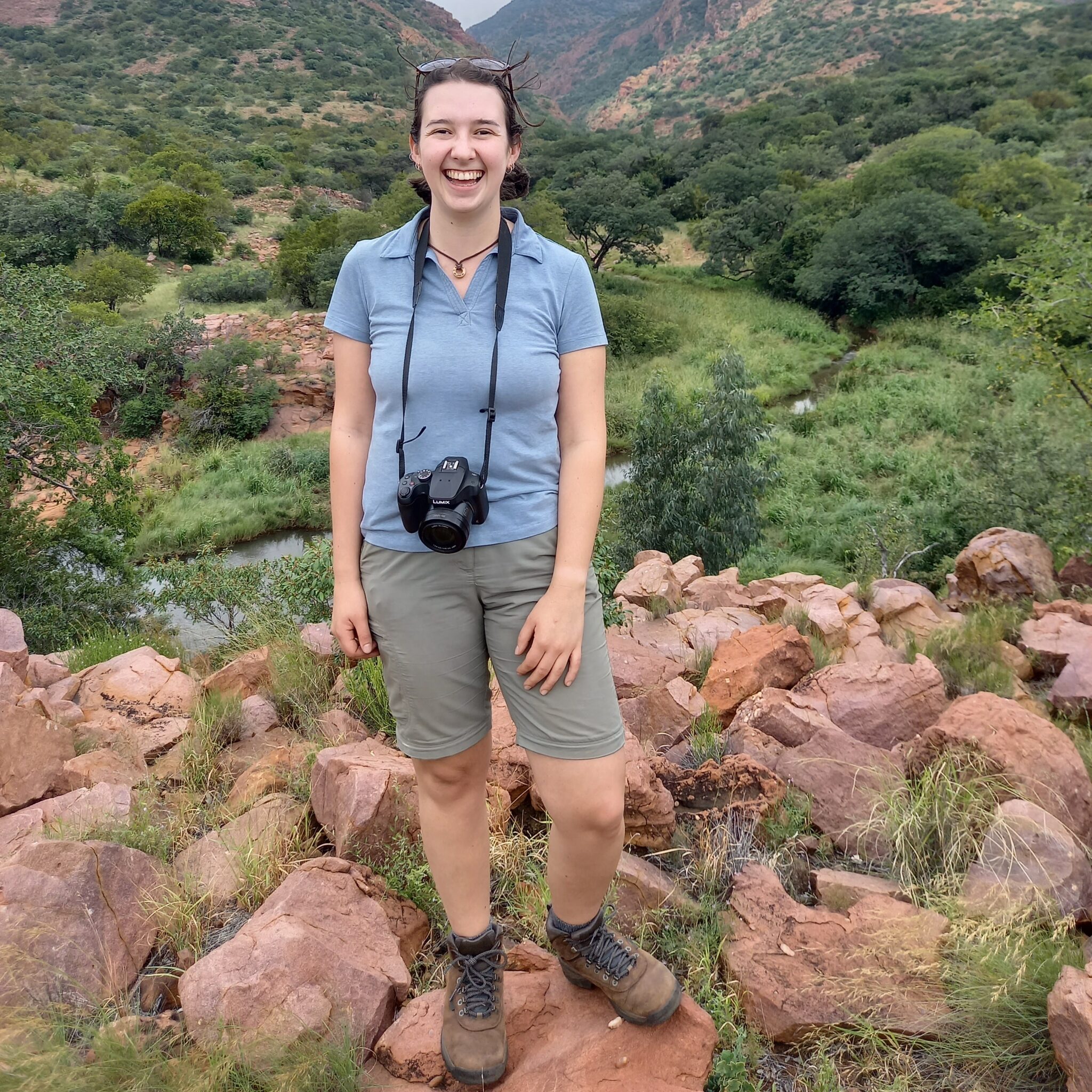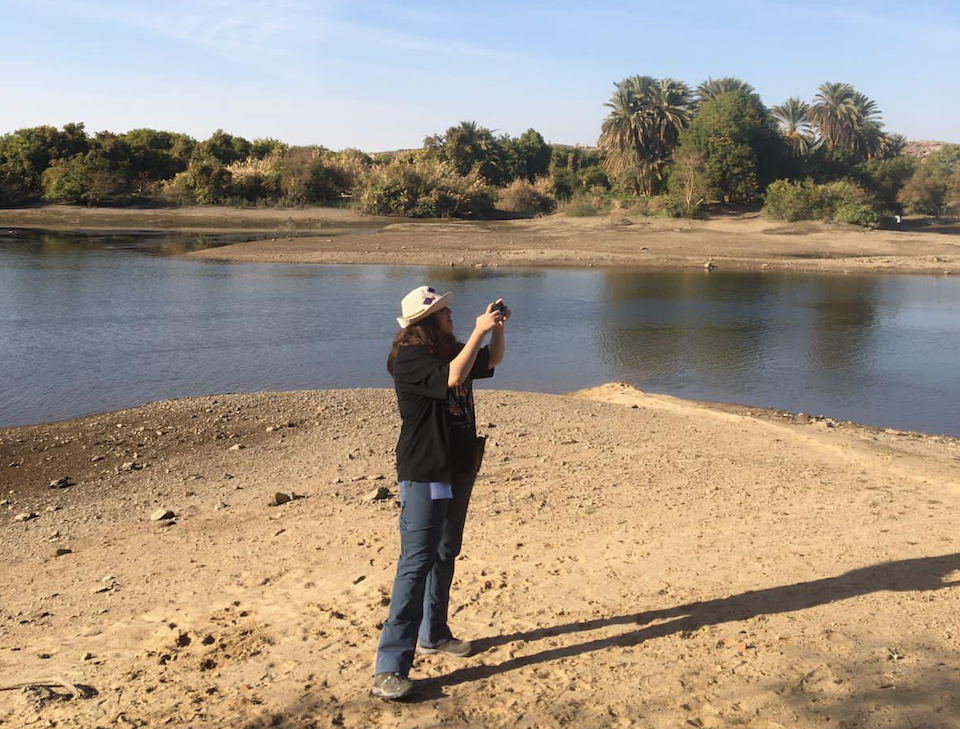
Finding your wings as an early career conservationist in Egypt
Nadia Sherif is an early career conservationist from Alexandria, Egypt, working for Nature Conservation Egypt (NCE) as a Conservation Officer.
Having always been passionate about the wildlife that surrounded her in Egypt, Nadia knew from a young age she wanted to forge herself a career in conservation, an unheard of career option in Egypt at the time. This was such an unusual aspiration that she had to fight against her mum’s wishes and persuade them to support her in following her passion.
This determination saw her travelling to Sheffield, United Kingdom, to study a BSc in Ecology and Conservation Biology. After graduating in 2021, she returned to Egypt to establish herself a career as a conservationist.
Here, Nadia discusses her journey through the trials of getting her first role in conservation. She also gives some tips for those in Egypt whilst sharing her devotion for her job and the birds of Egypt, so let’s dive right in!
“I used to write reports. I then moved on to monitoring and counting when I had training in ID for water birds, raptors and soaring birds. It’s honestly amazing.”
Nadia started as a paid intern for NCE in September of 2022, helping with report writing. Then, in February 2023 she was offered a role as a Conservation Officer which involved monitoring the landing of soaring birds (raptors, stalks, pelicans, ibis, etc.) on their migration back to Europe and Asia in the Spring via the Rift Valley/Red Sea Flyway.
“It’s so hard. I was so stressed and overwhelmed the first few days. But once you note down the top side, and bottom profiles as well as certain behaviour, you start to identify them more confidently. It takes a lot of field practice but it’s very worthwhile.”

In the Mediterranean region, an average of 25,000,000 birds are poached on their annual spring migration. Nadia is working with NCE to create a systematic count of migrating birds to help monitor their populations in Egypt.
In the spring season, Nadia spends her time at one of the flyway bottleneck sites counting all the birds that pass through. The NCE team are working on building a profile for this area, the North Galala Plateau/the Galala Bird Observatory, with the team going out every day during the spring migration year on year to build up a systematic count for the bird populations travelling through.
Once the migration finally ceases in the summer, the team starts processing the data for the reports before heading out for a second field season in the winter surveying waterbirds.
“Counting raptors every day, so many raptors, they are so beautiful.”
You may be wondering why this is so important? Of the 188 passerines, perching birds such as songbirds, that migrate along the African-Eurasian flyway, 64 (34%) are in decline.
Every year, in the Mediterranean region alone, an average of 25,000,000 birds are unlawfully shot, trapped or poisoned. Already endangered species which are already fighting habitat loss and climate change are pushed closer to extinction – all in open defiance of the law.
Nadia explained that bird hunting, which is sometimes a main source of household income, is a common practice in impoverished areas in Egypt. Birds of prey are attracted to small birds already caught in the nets, becoming entangled themselves. However, the hunting of migratory birds is an ancient practice and is a huge socio-economic activity. For some, it is their only source of income.
There is a desperate need for more intersectional environmentalism in Egypt, which is something Nadia and her colleagues at NCE are working to achieve through supporting alternative sources of income such as community based conservation, citizen science and ecotourism.
A highlight for Nadia in her new role is to finally meet like minded people with the same interest in her home country. She had finally found a community of nature lovers that she never knew was there.
“Egypt, it’s not like the UK in the sense of not a lot of people appreciate or see nature.”
Through discovering this community, Nadia has been able to learn from others and share her passion.
To get to where she is now, Nadia started volunteering at the age of 14, joining a UN environmental camp at the Red Sea. Whilst studying in the UK, she continued to volunteer with the university’s conservation society, gradually accumulating a wide variety of experience.
Over the summer between her studies, she also travelled to Indonesia to volunteer, gaining valuable experience in community engagement and education in rural villages.
“When I went to uni they kept telling me that volunteering is so important and it is. You get to learn a lot that you don’t learn in uni, that you only get from experience.”
However, despite all the experience Nadia had accumulated over the years, following her graduation she did not feel confident in her abilities as a conservationist. But, slowly she began to trust the skills she had gained and by learning from other people and her confidence grew to successfully pursue her dream career.
“It’s a steady journey and it takes practice and patience and will. It’s been amazing.”

During the survey season, the NCE team is out every day counting the birds that pass through the flyway.
Nadia opened up and explained that whilst she was at university, she was diagnosed with panic disorder. After she finished her degree, she felt so burnt out she made the crucial decision to move back with her parents and take time to rest and focus on her mental health.
She discussed the huge pressures on graduates to leave university and go straight into a job in the relevant sector and how we often do not give ourselves the time to take a step back and focus on ourselves. As Nadia highlights, working as a conservationist can be very tough on your mental health and it is key to look after yourself, too.
“I felt relieved when I was diagnosed and I have been focussing on my mental health ever since. It’s very important, especially in a job where you’re working in harsh conditions all the time, you don’t have a stable life, you’re always travelling around, you need to be comfortable with yourself.”
After 6 months at home, Nadia started to look for jobs but struggled, leading to her feeling very insecure about her abilities to break into the sector. Unfortunately, this situation is experienced by many with numerous fellow conservationists struggling to land that first role.
But, whilst applying for jobs, Nadia kept herself motivated by working to enhance her employability. She was able to make the most of this opportunity to expand on her knowledge and ID skills.
She also dedicated this time to rediscover herself: her passions, her hobbies, learning to feel better about herself as a person. Six months later she landed a paid internship with NCE.

Nadia’s key advice to young conservationists is to be patient and to have a strong will. It is these traits that got her to her foot in the door with NCE.
“I had an interview and they took me under their wing ever since then and I’m so thankful.”
Following her recent journey finding her feet in the sector, Nadia has two key bits of advice to share with fellow aspiring conservationists:
“One is patience. And one is a very strong will, you need to need this. I fought with my mum throughout highschool because she didn’t think I should go into this field. It’s either a doctor, lawyer or engineer for us here. The common job types. I didn’t even know what an ecologist was when I was growing up and my mum struggled with the idea for a few years. Now she is one of my biggest supporters. Just don’t give up, don’t give up on what you want. That is what got me through this.”
“Don’t be afraid to explore new opportunities. Volunteer with local groups, find other people, there are alot of people with the same interests as you, a lot of people who care about nature and there is definitely a local group in your city who care about nature and wildlife. Find these people because change happens through the community.”
It never hurts to expand your knowledge and skills in other fields. Nadia grew up devoted to marine biology, however she now has a new found love for avian ecology. Making the most of whatever opportunities come your way is key to getting your foot in the door and joining a community.
“Here [in Egypt] the field of conservation is not that common, there is no competition really, it’s not like the UK so I was lucky when it came to that but it is a sad thing as well, we need more people in that field here.”
If you live in Egypt and would be interested in volunteering, NCE runs bird ID training courses at the beginning of the spring migratory season. This provides volunteers with the ID skills to go out and join the team in recording the incoming birds and extra eyes are always welcome!
Other organisations in Egypt Nadia recommends reaching out to include:

Nadia is also hugely passionate about marine ecology and has experience carrying out surveys of fish and invertebrate diversity and measuring the degree of coral bleaching.
“Reach out to them, they probably need volunteers, we need volunteers. We would love your help and your knowledge, we learn from each other. We want to encourage more people and more groups to speak up.”
Thank you Nadia for sharing your story with us and for wording things so beautifully. This discussion has also highlighted the importance of taking the time to take care of yourself too; saving the world starts with self care.
If Nadia has inspired you to fight to follow your passion and keep persevering, you can follow the NCE on Instagram at @Nature_egypt and Facebook at Nature Conservation Egypt to see more of their work.
To join Nadia on her journey, you can find her on Instagram @_nadiasherif.
Looking for more information on starting your career in conservation? Check out our Top Conservation Careers Advice for Job Seekers for more information and advice!
Author Profile | Katherine Beasley

Interviews, Early Years, Celebrating Diversity in Conservation, Scientist



